Worker Placement games have been a staple in the release schedule for over 20 years.
Here is everything you need to know.
Top 10 Worker Placement Games
These are my top 10 worker placement games, or at least games I consider to be worker placement games. the topic is a bit blurry.
What is a worker placement game?
Quite simply, this is a game where you will place a worker to perform the action shown on that space.
Obviously, there is a tonne of variation from game to game but we’re looking at what a worker placement game is at the base level here.
Usually, there will be several spots around a board and players will take turns placing their workers on them. Most of the time these spaces will only allow one worker each, first come first served. This means turn order is very important.
After all players have placed, they are returned from the board, the start player changes to someone else and a new round begins. Quite often there will be a space on the board that will allow a player to become the first player on the next round.
Every worker placement game is of course, unique with different themes and goals attached. Most of these see you use workers to collect resources, then use those resources to do something else, such as build buildings.
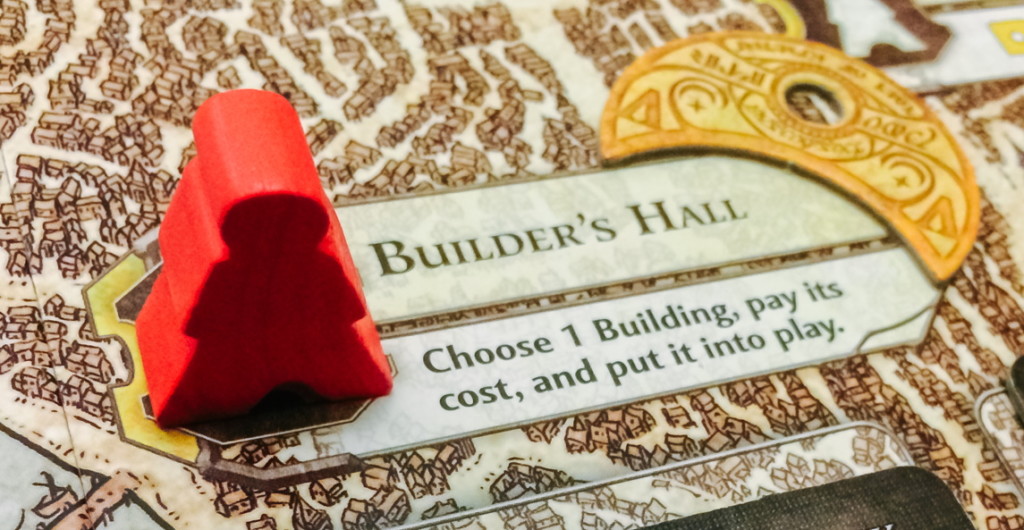
vs Action Selection
There’s a fine line between a standard worker placement game and an action selection game that use a pawn in a similar way. In both types of games, you’re putting a thing in a specified space and taking that action. There seem to be two main differences.
One, the thing you place almost always represents a living thing in a worker placement game. A worker, a farmer, a wizard, a bear… whatever. Action selection will use a disk, cube or some other token.
Two, the place you’re placing the thing is specific and usually thematic. For example, placing in a forest gets you wood, a quarry gets stone etc Action selection usually bases the actions less thematically.
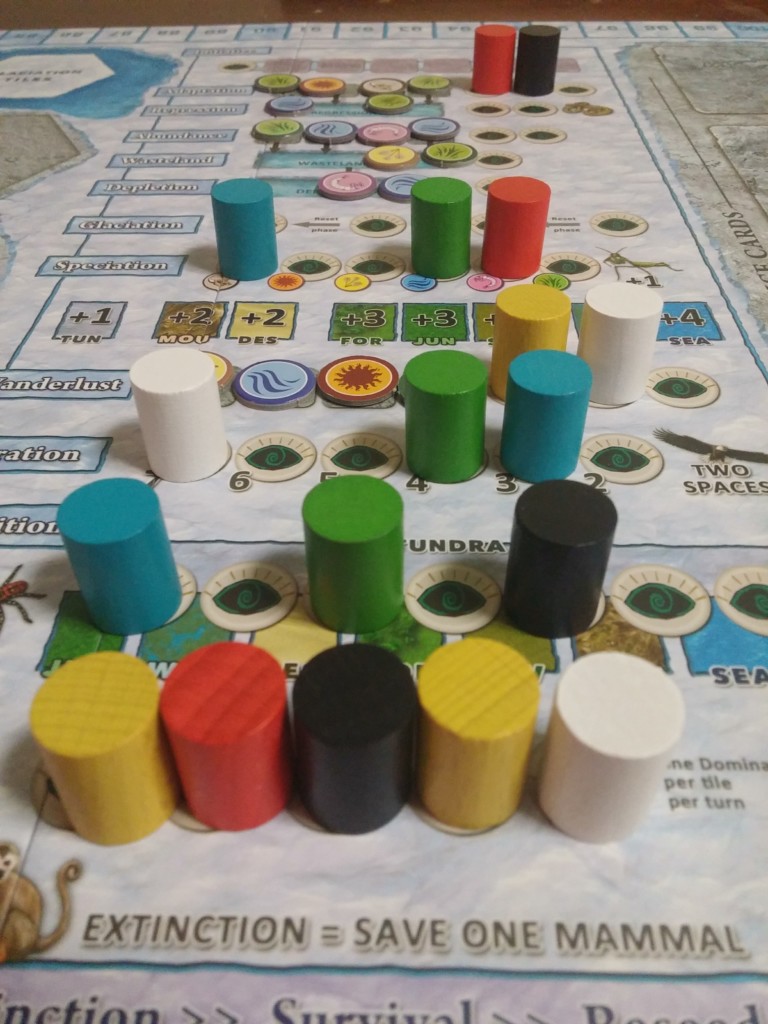
vs Dice Placement
I’m talking about games where you place a die to take an action, in place of a meeple or other component.
Just like action selection, these two mechanisms are very close together. In a lot of cases, they do the same thing where you place an object in a space to take an action. However, the die face is usually set to a specific value or even rolled to a random value. This value will determine the strength of the action you take.
So in a worker placement game, you might place a meeple in a gold mine to take one gold. In a dice placement game, maybe a dice value of 4 or higher is needed to place on that space. or maybe you get a gold for every 3 pips on the placed die.
This adds a lot of strategy to the system.
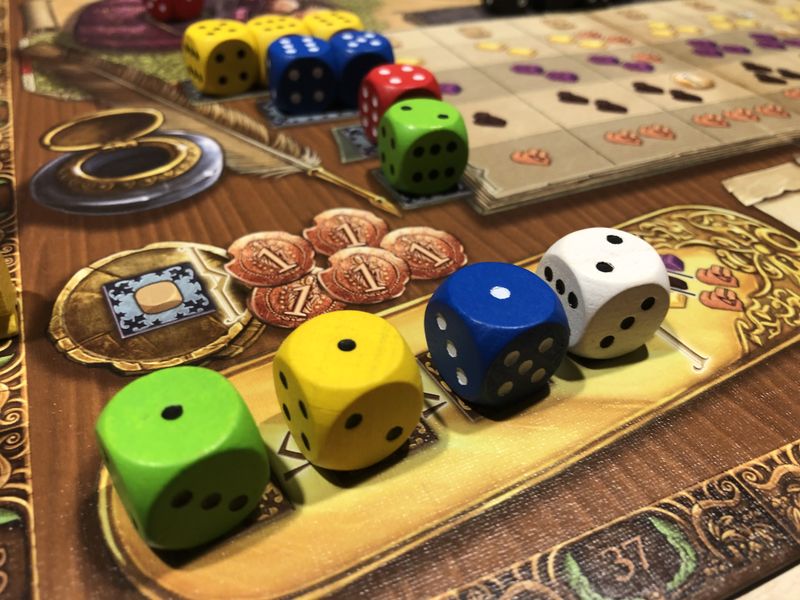
What was the first worker placement game?
It’s generally said that the first worker placement game is Richard Breese’s Keydom from 1998 which is set in Medieval times. Here, numbered disks are placed face down in different areas and once they are all placed, they are resolved in descending numerical order.
Like a lot of things, the one that came first isn’t always the most popular. The first seemingly popular worker placement game is said to be Caylus from 2005. Set in medieval France, similarly to Keydom, you send out all of your workers first then they are all activated in order.
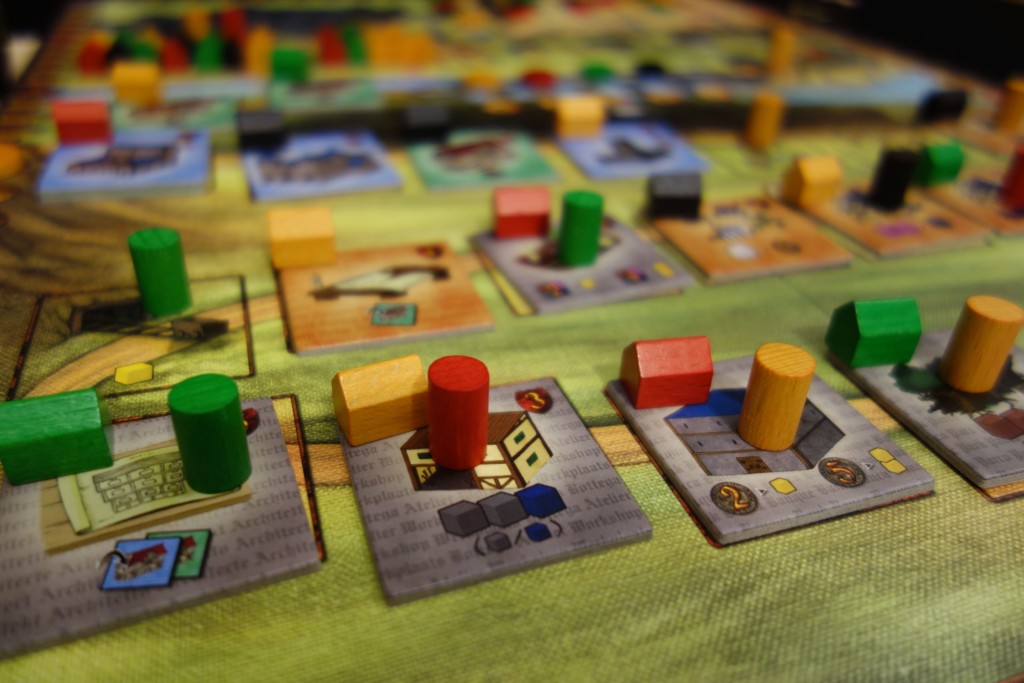
According to BGG, the first game with a Worker Placement element was 1991s Silverton. Here you place prospectors and surveyors across the land in 19th century Colorado. This does not appear to be a traditional worker placement game as it is seen today. It’s more of a tool to place cubes to reserve land that you will build on later.
Are Parks, Carcassonne or Catan Worker Placement Games?
These are three commonly asked questions according to Google.
First Parks. BGG has it listed as worker placement and you do move a worker, in this case a Hiker, onto a space to take that action. Even though the actions are in a linear path and you never take the workers back it seems to fit the criteria. So yes, Parks can be considered a worker placement game in a way but it’s not a traditional one.
Interestingly, Carcassonne is NOT listed as a worker placement game on BGG. It’s obviously first and foremost a tile-placement game. But then you do place a Meeple, turning it into a worker so maybe you can say Carcasonne has a secondary worker placement element. I think the key is you’re not placing the worker to take an action.
No, Catan is not a worker placement game.
List of Games
This is a list of the worker placement (or worker placement adjacent) games I have reviewed.
- Archipelago
- Argent: The Consortium
- Belfort
- Bora Bora
- Code of Nine
- Dominant Species
- Everdell
- First Martians: Adventures on the Red Planet
- The Gallerist
- Last Will
- Lords of Waterdeep
- Lorenzo il Magnifico
- The Manhattan Project
- Ninjato
- Rajas of the Ganges
- Robinson Crusoe: Adventure on the Cursed Island
- Russian Railroads
- Stone Age
- Troyes
- Tzolk’in: The Mayan Calendar
- Victorian Masterminds
- Village
- Viticulture
- The Voyages of Marco Polo
Jesta ThaRogue


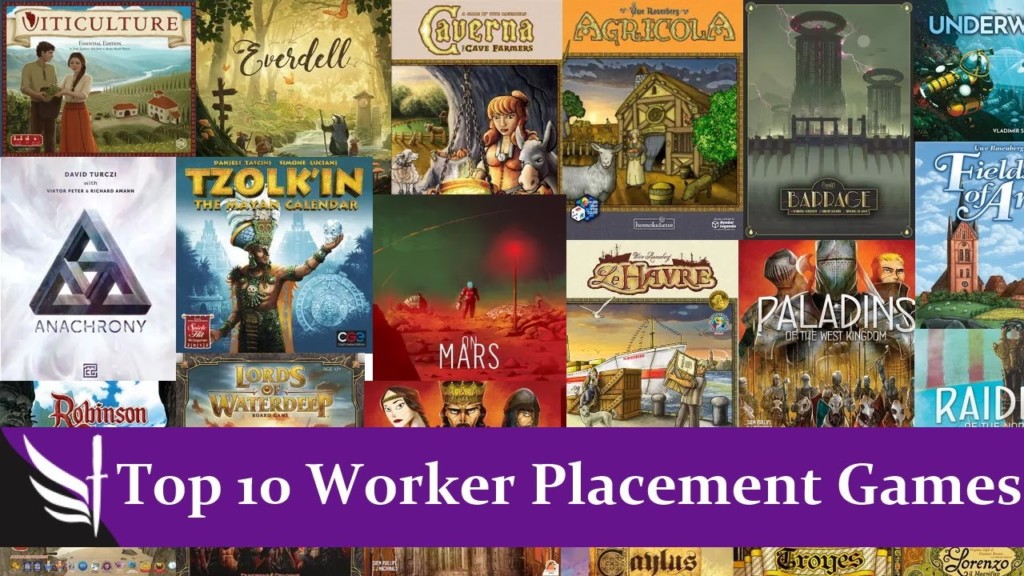
Leave a Reply